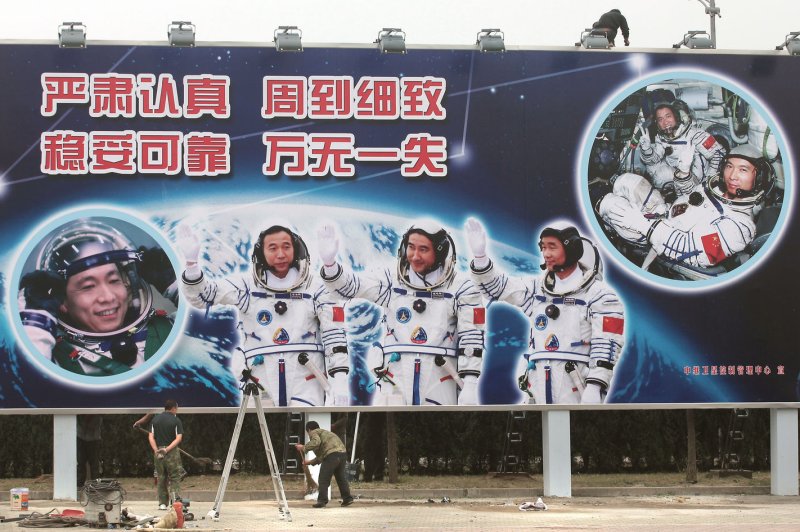A Chinese worker installs lights on a giant billboard celebrating China's space program near Beijing's "Space City." China plans to have its own space station fully operational by 2022. UPI/Stephen Shaver |
License Photo
BEIJING, Sept. 10 (UPI) -- Come 2022, Chinese astronauts won't have to suffer the presence of foreign colleagues; they'll have a space station all to themselves.
At a press conference on Wednesday, China's first astronaut and deputy chief of its space agency, Yang Liwei, announced that his county was gearing up to launch a space station by 2022. The announcement came during the annual meeting of the Association of Space Explorers.
There, Liwei specified the launch of the Tiangong-2 space lab in 2016 would be followed shortly after by the launch of the Shenzhou-11 spacecraft and Tianzhou-1 cargo spacecraft -- all of which would convene in space and dock to each other, creating a fully Chinese space station.
The nation of 1.26 billion people declared their intentions in 2010, but the latest announcement solidifies an updated timeline -- one slightly behind schedule, though no explanation for apparent delays were offered.
Early iterations of the agency's space lab and space station components, Tiangong-1 and Shenzhou-10, have proven successful; the first space lab was launched in 2011 and docked a craft in 2012. Now, Liwei says, the agency is ready to begin testing their new and improved sister spacecraft.
Though the space station will be owned by China and operated by Chinese astronauts, Liwei says the agency is cooperating with other countries and hopes to host joint space missions.
"I myself received micro-gravity training programs in Russia," said Liwei. "We've reserved a platform to cooperate with other countries in missions by having designed interfaces for our space modules so that they can dock with modules of other countries."















